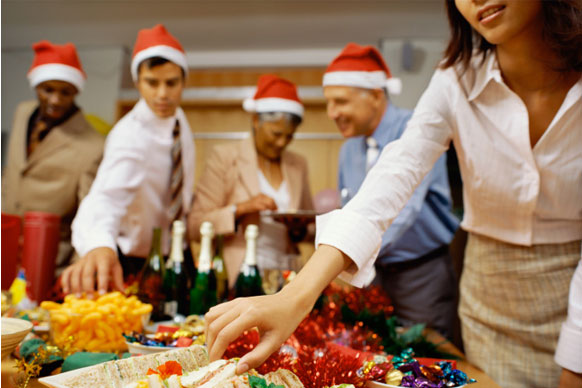By Matt O’Neill, Dietitian, Drummond Education Team
With a little party planning, social events need not sabotage your healthy eating plan. Here are some tips to feel more confident about managing food at functions:
- Start the day of a party with a healthy breakfast. If you know there will only be high-calorie foods at the party, eat a little less than you usually would during the day (no starving).
- Don’t arrive hungry. Have a small healthy snack before the function to take the edge of your hunger.
- Schedule an activity session before the party so you’ve burnt up calories in advance.
- If you’ve been asked to bring a plate, bring a low-calorie dish you know you can eat.
- If you are the food provider, plan your menus. Only buy and prepare as much food as you need.
- Throw your own party and put on a low-calorie spread. Your guests may be pleasantly surprised at how tasty it is.
- Let people know you are eating healthy foods and ask that they don’t offer you fatty or sugary treats.
- Set yourself a limit for alcohol before you start partying and stick to your plan.
- Choose diet soft drinks, mineral water or plain chilled water.
- When offered pre-dinner snacks from a platter, simply say “I’ve already tried it — it was lovely, but I’ll save myself for dinner.”
- Avoid stockpiling your plate with food you may not need, but are likely to eat. Take one or two items and come back for more if you are genuinely hungry.
- Adopt a pastry-free policy. By avoiding one of the most calorie laden party foods, you’ll be ahead.
- Choose a smaller plate at buffets and smorgasbords.
- Move away from the buffet once you have something on your plate. When you move away, face the opposite direction so as not to be tempted back for more.
- At the party, talk more and eat less.
- Eat slowly and pay attention to your stomach’s fullness signals so you know when it’s time to stop eating.
- You don’t have to finish your plate. It’s far better to put the calories in the waste than around your waist.
- Be first to push your plate away. This will signal to others that it’s OK to stop eating too.
- Place leftovers in the fridge or freezer immediately after serving. This makes it harder to go back for more.
- Don’t feel you’ll offend the host if you don’t have dessert. If you are satisfied with the main course, put yourself first and let the host know the meal was lovely and that you are full.
- Clear the table after the meal, rather than leaving food out as tempting all-afternoon or all-night nibbles.
- Better still, give any leftovers to guests when they leave. You have to put yourself first.
- Go dancing or go for a stroll after dinner to burn up some of the extra calories.
- If you overindulge, try not to feel guilty, as this can make it harder to get back on track the next day. Having flexibility in your program is a key factor for success.
